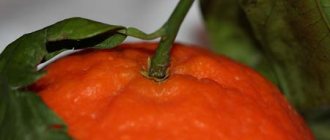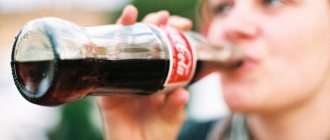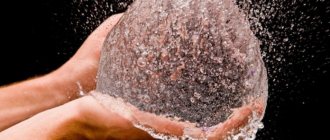Once upon a time, “tsai-ye” was brought to Russia from Mongolia, which translated from Chinese means “young leaf”, known to us rather under the name “tea”. Since then, the tradition of “making tea” with a traditional Russian samovar and bagels has spread across the vast expanses of Rus'. And this magical invigorating drink gained a lot of fans and admirers.
The mysticism of this drink is reflected in the legend of its origin. One Chinese sage named Darma led an ascetic life, spending day and night in meditation and prayer. He tried so hard not to sleep that he forcibly prevented his eyelids from closing. But one day his body could not bear the load, and he fell into a slumber. Then, awakening, the sage angrily tore out his eyelids and threw them to the ground. A month later, where they fell, green tea bushes grew, which have since helped us “wake up” in the morning and stay awake, brightened up the conversation and warmed us up in the winter cold.
Can pregnant women drink tea?
But it turns out that the period of waiting and breastfeeding is not the right time for tea drinking. Because tea contains alkaloids caffeine, theophylline, theobromine. Teas, of course, come in different varieties: black, red, yellow and green, and about 31 percent of the country’s population drinks them regularly. But no matter what color the aromatic and invigorating drink is, it contains caffeine (thymine). Scientists have not yet definitively determined whether there is a relationship between birth defects, underweight newborns and caffeine, which is found in chocolate, cocoa, coffee, aspirin, Coca-Cola, black and green tea.
However, in 1980, the US Surgeon General advised pregnant women to use caffeine-containing products in moderation, due to the fact that large doses of this stimulant cause irritation in the stomach, promoting indigestion and heartburn, and can even cause miscarriage. But the main thing is that caffeine affects sleep - now not only yours, but also that of your growing baby (it doesn’t matter whether it’s still in your stomach or you’re breastfeeding). So, despite the large amount of vitamins contained in tea, we are slowly but surely switching to other drinks.
Drinks to limit
Coffee - contains caffeine. Moreover, a cup of instant coffee contains even more of it than a cup of natural coffee. Plus, instant coffee contains chemicals that make it soluble. Regular consumption of more than 5-6 cups of coffee per day is the same drug addiction as cigarette addiction.
That is why coffee consumption during pregnancy should be reduced and kept to a minimum. However, you can drink it in small quantities (1 cup of natural coffee per day). Not regularly, but in those cases when you really want it, or when a cup of natural coffee replaces medicine for low blood pressure.
Tea also contains caffeine, and a cup of strongly brewed tea contains no less of it than a cup of coffee. Therefore, a pregnant woman needs to drink it very diluted, which usually affects the taste of the drink. Many people prefer not to drink tea at all than to drink it in this form.
Some people mistakenly believe that if they replace black tea with green tea, they will get less caffeine. This opinion is wrong. A cup of green tea contains no less caffeine than black tea, so the same restrictions apply. On the other hand, green tea is rich in microelements and bioactive substances, so if a pregnant woman drinks tea, then green is better than black, but do not forget about its strength.
Fruit tea, which has become fashionable recently, can be divided into regular tea with fruit additives, and a purely fruit or herbal drink. Of course, such tea is healthier than regular tea if it is brewed directly from dried leaves and fruits, and not from bags. However, we should not forget that tea with fruit and herbal additives remains the same tea, and we will again have to remember its strength.
Cocoa is a fairly strong allergen; allergies to cocoa are much more common than to coffee or citrus fruits. In addition, cocoa (like coffee) helps flush calcium from the body.
Carbonated water - promotes excess gas formation and flatulence. Sweet carbonated drinks, such as Coca-Cola, contain a lot of synthetic chemicals, the use of which is not recommended for everyone, especially pregnant women. In addition, cola and other drinks interfere with the absorption of calcium.
Juices are, of course, much healthier. However, it is better to drink freshly squeezed juices rather than from packages. The latter do not always contain safe and harmless substances: companies often add vitamins, taste improvers, preservatives, etc. to their juices. In addition, many of them contain large amounts of sugar. If you are choosing among packaged juices, you should give preference to those intended for baby food.
If you are not used to drinking two, or even more so three, liters of liquid in one day, we advise you to use the following techniques. Drink the first glass of water immediately after waking up in the morning on an empty stomach. Try to limit your caffeine intake, as this substance causes dehydration and acts as a diuretic.
While water is the best option for hydration, natural fruit juices and sugar-free herbal infusions are okay.
Don't wait until you are extremely thirsty. Set a clear drinking schedule and stick to it. For example, drink another glass of liquid every hour while you're awake. Remember that thirst is a sign of dehydration, so take a sip of water now.
Use juicy vegetables and fruits as healthy snacks; this will slightly increase your fluid intake.
The time will come when you will restore muscle tone, but strenuous workouts during pregnancy can have adverse consequences for the health of the baby. One way or another, before each yoga or gymnastics class, drink a glass of water. Do this while going for a walk.
Of course, we all cannot imagine life without sweet carbonated drinks or mineral water, but can expectant mothers drink carbonated water? What is the best way to quench the thirst of expectant mothers? Let's try to understand this seemingly difficult issue.
In order to answer this question, let's first understand the composition of soda. Sweet carbonated drinks contain a lot of preservatives, flavor enhancers, citric acid, sweeteners and, of course, sugar.
The acids contained in sweet carbonated drinks do not have the most beneficial effect on the gastric mucosa. And sugars contribute to excess weight gain.
It is worth noting that many carbonated drinks are no less high in calories than sweets.
And don’t forget about the additives that are used in the production of soda; not all of them are harmless to the health of the expectant mother.
In order to give carbonated water a more pronounced taste, manufacturers use various additives, such as sodium benzoate, which has a negative effect on the liver, and when interacting with ascorbic acid, becomes a dangerous carcinogen that contributes to the development of cancer. Pregnant women are strongly advised not to buy and consume carbonated drinks that contain sodium benzoate (E211).
Also in many sodas you can find an additive such as orthophosphoric acid, which can cause exacerbation of gastritis or gastric ulcers. In addition, this supplement negatively affects the pregnant woman’s ability to absorb calcium, magnesium and iron.
Therefore, before you buy carbonated water, you should carefully study its composition, because you are responsible not only for your health, but also for the health of your unborn baby.
You can find a huge amount of different mineral water on store shelves, but how beneficial is it for pregnant women? Not everyone knows that pregnant women can only drink table mineral water; other types of mineral water can only be consumed as prescribed by a doctor for certain diseases.
Thus, we found out that carbonated drinks are not the best option for quenching thirst for pregnant women, especially since they can often cause gas formation and pain in the intestines of the expectant mother. It is better to prefer natural juices, fruit drinks, compotes, which are not only pleasant to the taste, but also healthy for you and your baby.
Coffee addiction is common to many modern women. Without a cup of coffee, it is difficult to start work and concentrate, and there is no need to talk about the pleasure from this drink. In modest doses, coffee, of course, does not pose a great danger. But given the caffeine content in it, expectant mothers should be careful. Why?
We invite you to familiarize yourself with the Beautiful abs and buttocks diet
For other expectant mothers, a small cup of weak, only natural brewed coffee per day is enough. Or better yet, a coffee drink (one that is caffeine-free). And, of course, not on an empty stomach. As for instant coffee and three-in-one bags, they should be completely, categorically excluded.
Are juices good for an expectant mother? Absolutely yes! But - only freshly squeezed ones. And no more than 0.2-0.3 liters per day. The more juice, the more active the kidneys work. But it’s better to avoid factory-made juices - due to preservatives and large amounts of sugar. So, what juices can and cannot be given to expectant mothers?
- Apple. If gastritis or pancreatitis worsens, refuse. For high acidity, dilute with water 1:1. In other cases, it’s a complete benefit.
- Pear. Starting from the 2nd half of pregnancy - refuse. The pear can cause constipation, and bowel function is already difficult due to the enlargement of the uterus.
- Tomato. If you have high blood pressure and swelling, do not abuse this juice (it contains salt). Otherwise, its properties are beneficial (improving blood circulation, alleviating toxicosis, etc.).
- Orange. Allergic juice - you need to drink with caution. A significant disadvantage is the removal of calcium, which the child needs for normal development.
- Cherry. Increases acidity in the stomach and has a laxative effect. If you have gastritis/heartburn, you should not drink. Positive properties: folic acid content, increased sugar levels and appetite.
- Grapefruit. This drink may neutralize the effect of some medications. The benefits of juice are for nervous exhaustion and varicose veins, for improving sleep and digestion, as well as reducing blood pressure.
- Carrot. In large quantities it is contraindicated due to the beta-carotene content (no more than 0.1 ml twice a week).
- Beetroot. The expectant mother can drink it only in diluted form, a couple of times a week and only 2-3 hours after the juice is prepared. Substances that fresh juice contains can cause headaches and nausea.
- Birch. Useful only in the absence of an allergy to pollen - especially in severe toxicosis. Considering the glucose content in juice, you should not abuse it.
Experts strongly recommend that expectant mothers categorically abstain from all types of alcohol – especially in the first two trimesters. There are no “light” drinks.
There can be no benefit from wine, given that the baby is developing inside you.
As for the harm, it’s better to simply not take risks, so that those 1-2 glasses of wine do not cause trouble, even leading to premature birth.
According to statistics, pregnant women who drink soda before giving birth give birth prematurely. When drinking more than 2-4 glasses of soda per day, this risk doubles. Moreover, this applies to any type of carbonated lemonade. What is the danger of such drinks?
- Risk of developing hypertension, obesity, gestational diabetes mellitus.
- The presence of phosphoric acid, which has a negative effect on bone density. Simply put, it interferes with the normal development of the osteochondral system in the fetus.
- The caffeine in Coca-Cola harms fetal brain development and increases the risk of miscarriage.
- Also, a carbonated drink causes fermentation in the intestines, which, in turn, can lead to uterine contractions.
Juices during pregnancy
First of all, let's remember about juices that can be successfully made at home. And although this process is mostly labor-intensive (it’s worth washing the juicer), the health of a pregnant woman requires sacrifice. From others, of course. Have a juice day this coming weekend: apples, carrots, cabbage and beets are available even in winter. Proponents of juice therapy advise drinking at least half a liter of juice every day. But we are all human: the modern pace of life does not allow us to spend more than five minutes a week making juices... In addition, it is better to drink juices freshly prepared, since even short-term storage in the refrigerator accelerates fermentation and spoilage, although the taste does not change. Storage destroys vitamins, and canned juices are less active than fresh ones. Nutritionists recommend drinking from a liter to 4 liters of liquid per day; juices can be replaced with regular tangerines and apples, pomegranate and kefir from the nearest supermarket.
Water during pregnancy
While expecting a baby, it is imperative to establish a drinking regime and decide which drinks can be consumed and which ones should not be consumed.
By consuming enough water, a woman helps remove metabolic products from her body. Water penetrates into every cell, washing it of toxins and waste.
Insufficient water intake can lead to increased protein in the urine, sand and kidney stones. When consuming insufficient amounts of water, the bile becomes thicker, which can lead to its stagnation in the bladder, and subsequently to the occurrence of cholecystitis.
So how much water should a pregnant woman drink to feel good? The average daily water intake is the same as for a healthy person - about two liters per day. But there are also individual norms for fluid consumption, which are prescribed by a doctor. You need to drink, just like you eat – a little and often. Read the link to learn how to drink water correctly for weight loss.
Healthy drinks for pregnant women
There is a popular belief that weed is quite harmless. However, decoctions are, first of all, medicine, and therefore, when choosing decoctions for yourself, you need to consult a doctor. Nutritionists and doctors advise limiting the consumption of even the most proven herbal tea to two cups per day.
Suffice it to remember that in Tibet, “just herbs” are still used to treat serious diseases and injuries. Some “natural” herbs like sassafras or mistletoe have pharmacological properties that can be dangerous during pregnancy: cause vomiting, diarrhea, palpitations, low blood pressure and allergic reactions.
I hope that you have already given up coffee during pregnancy? Or at least switched to Golden Ear rye drinks, which do not contain caffeine. I, a desperate water drinker, turned to the gynecologist at our “pregnant” school for advice. First of all, I was interested in tea and coffee substitutes, as well as herbs that can be consumed during pregnancy.
First on my “pregnant” list was green tea. Green tea is recommended for pregnant women because it contains half as much caffeine and brings many benefits: it has bactericidal properties and even kills the dysentery bacillus. The green drink adsorbs toxins, cleanses the entire contents of our stomach, and is even a preventative against cancer. It has diuretic properties and acts as a remedy against the formation of kidney stones. But if you don’t like it, then it’s better to try herbal decoctions, berry and flower infusions, as well as drinks based on fruit juices and fruit drinks. Finding the necessary ingredients even in winter is not a problem. Our generous nature took care of this!
What can a pregnant woman drink?
le> For the normal functioning of the body, it is important not just the supply of fluid, but also its presence in a certain quantity: excess water, as well as its lack, can have a detrimental effect on health. Water balance is especially important during pregnancy, when the growth and development of the fetus depends on the normal exchange of fluid in the body of the expectant mother.
Water balance during pregnancy
Entering the human body, water undergoes various transformations, participating in the most important metabolic processes, and is then excreted through the kidneys, intestines, skin and lungs. A healthy person leading an active lifestyle loses a significant amount of water per day. Most of it is excreted in the urine and through the digestive tract with feces, some of the liquid is excreted through sweat and during breathing.
During pregnancy, fluid consumption in a woman's body increases. This “wastefulness” in relation to water resources is explained by the fact that the expectant mother increases her body weight, the area of blood vessels, and the volume of circulating blood. The greater the body weight, the greater the volume of tissue that needs blood supply; in addition, the placenta and umbilical cord must be supplied with blood - this is why the lengthening and additional branching of the vessels occurs.
In addition, during pregnancy, amniotic fluid is constantly formed, the composition of which is continuously updated. By the time of birth, their volume reaches about 1.5? l - and this is also an additional “expense item” of fluid in the mother’s body. Water is also necessary for vital processes in the baby’s developing body: like in an adult, in the fetus, fluid is an important component of metabolism. Obviously, with such a consumption of fluid for the internal needs of the body, the expectant mother needs to especially carefully observe the water balance - the ratio of water entering the body and water released from it.
The increase in the volume of circulating blood that occurs in the body of the expectant mother affects the functioning of her cardiovascular and urinary systems. The load on the heart, blood vessels and kidneys increases in proportion to the increase in gestational age, body weight and volume of fluid in the body. In addition, against the background of hormonal changes in pregnant women, there is a tendency to fluid retention; The pregnancy hormone progesterone is “to blame” for this, increasing the production of aldosterone, a substance that controls the distribution of fluid in the body. Due to the increased secretion of this hormone in the expectant mother, vascular permeability increases and part of the water contained in the blood plasma leaves the bloodstream into the surrounding tissues, forming edema. Against the background of increasing load on the kidneys, fluid retention can lead to the development of gestosis - a dangerous complication of pregnancy, manifested by a persistent increase in pressure, loss of protein in the urine and edema.
It turns out that an excess of fluid intake into a pregnant woman’s body, as well as a lack of it, has a bad effect on the course of pregnancy and the development of the fetus. Therefore, in the process of monitoring the course of pregnancy, doctors constantly monitor the water balance of the expectant mother, monitoring weight gain, viscosity and biochemical composition of the blood when receiving test results, and urine test indicators, which are used to judge the functioning of the kidneys.
Feeling thirsty during pregnancy
The need for fluid is felt in the form of a feeling of thirst - a special signal from the central nervous system. During thirst, there is a feeling of dry mouth, slight shortness of breath and tachycardia - increased heart rate. These signals clearly indicate the body's need for additional fluid. The thirst signal occurs when the drinking center located in the hypothalamus, one of the most important parts of the brain, is irritated. The thirst center, or drinking center, is a special cluster of active neurons (nerve cells), whose task is to control the amount of fluid in the cells, intercellular space and bloodstream, as well as protect the body from dehydration.
The feeling of thirst depends on many external and internal factors acting on the body. The need for fluid can increase significantly with significant consumption of salty, smoked, spicy or too sweet foods: glucose and salts bind water, reducing its participation in general metabolism. Thirst also increases after physical activity, during which there is always a loss of fluid through sweat and rapid breathing. Thirst during fever (increased body temperature) is caused by the body's increased need for water to “wash out” the pathogen from the blood and reduce the temperature due to increased sweating.
There is another reason for thirst - high ambient temperature, or simply heat. Most people associate the feeling of thirst with the sweltering summer heat. Why does the need for water increase as the air temperature rises? The answer is simple: additional fluid during hot weather is necessary to maintain normal body temperature. Overheating is extremely dangerous for the human body, therefore, when the external temperature rises, it turns on its own “cooling system”, evaporating liquid from the surface of the body. Already at an air temperature of +25°C, daily sweating reaches 500 ml, and with a further increase for each degree it increases by another 100–150 ml. At ambient temperatures above +30°C, fluid loss through sweat in a pregnant woman can be up to 2 liters per day. Thus, in hot weather, water consumption through sweat increases, which, in turn, leads to an increase in the need to drink.
However, excess water intake, as well as lack of fluid, can do a bad job for a pregnant woman. In the heat, the load on the cardiovascular system and kidneys especially increases, and uncontrolled fluid consumption during this period is fraught with the appearance of edema. Therefore, in the summer, it is especially important for the expectant mother to learn how to monitor the body’s water balance and control the flow and release of fluid into the body throughout the hot season.
Diuresis during pregnancy
Diuresis is the ratio of fluid consumed and excreted. Calculating diuresis is recommended if the formation of edema is suspected, as well as when selecting the optimal drinking regimen for the expectant mother. This task is performed very simply: the woman is recommended to record all the liquid consumed and excreted during the day. To keep records, it is convenient to divide a sheet of paper into two columns; in the left column you need to enter all the liquid entering the body, and in the right column the amount of liquid released during each urination is recorded, starting from the moment of counting.
It should be noted that water is found not only in drinks, but also in soups, main courses, desserts and even bread; Therefore, to accurately calculate the incoming liquid, it is necessary to at least approximately take into account the mass fraction of water in the food consumed. On finished products you can find water content information on the label; the proportion of liquid in a cutlet or piece of pie is calculated as 20?% by weight of the product. If, during the period of calculating diuresis, the expectant mother receives medications intravenously, it is necessary to check with the attending physician the volume of infusions and also enter this data into the receipts column. To monitor the release of fluid, you should collect urine in a measuring cup during the day and enter the measurement data in the right column of the table. At the same time, it is not at all necessary to save and store the excreted urine for 24 hours: after the next count, the urine can be poured into the toilet. It is better to calculate urine output from a certain hour in the morning of one day to the same hour in the morning of the next day. At the end of the study, the entries in each column are summarized and compared; Normally, the difference between consumed and excreted fluid should not exceed 250 ml.
The average daily fluid requirement before pregnancy is 1.5 liters. While waiting for the baby, the body's need for water changes. Each period of pregnancy has its own norm of fluid intake. Until the middle of pregnancy (20 weeks), when the main formation and formation of fetal organs and systems occurs and metabolism in the body is especially intense, a woman needs to consume at least 2–2.5? liters of fluid daily. After 20 weeks, the volume and speed of blood flow in the expectant mother increases sharply; this leads to an increase in the load on the kidneys, heart and blood vessels of the pregnant woman’s body. Therefore, starting from 21 weeks, you should gradually reduce the amount of fluid consumed, bringing it to 1.5 liters by 30 weeks.
If the fluid supply is insufficient, blood viscosity may increase and the electrolyte balance may be disrupted, which will immediately affect the deterioration of placental blood flow and the increase in uterine tone. The result of such fluid restriction can be disturbances in the feeding and breathing of the fetus and even the threat of termination of pregnancy.
If you suspect fluid retention or the appearance of visible edema, you must first exclude from your daily diet foods that cause thirst and contribute to water retention in the body. Such products include all, without exception, marinades, pickles, pickled and soaked vegetables and fruits, smoked meats, dishes with an abundance of spices and hot seasonings, fatty and heavily fried foods, salty snacks (nuts, popcorn, roach), as well as sweets. If swelling increases, you should consult a doctor: they may be the first symptom of the development of gestosis. To combat increasing swelling, it is necessary to completely eliminate salt from the diet for several days, without adding it to food even during the cooking process. But the liquid should not be too limited; Moreover, you can fight swelling... with the help of the “right” drinks!
What should a pregnant woman not drink?
Strong coffee and alcohol are contraindicated during pregnancy, regardless of the time of year and ambient temperature; besides, they do not help quench thirst; sweet carbonated drinks contain harmful additives and increase thirst even more; Citrus-based drinks are the main cause of allergies and heartburn during pregnancy; Highly carbonated drinks can cause intestinal dysfunction and flatulence (bloating) due to the increased carbon dioxide content in them.
Drinks for pregnant women: summer menu
The first place in the ranking of “correct” summer drinks is deservedly occupied by mineral water with a low carbon dioxide content. Nutritionists recommend that expectant mothers give preference to mineral water with low mineralization (1 g of microelements per 1 liter of water) or low mineralization (no more than 5 g of microelements per 1 liter); data on the degree of mineralization must be indicated on the drink label.
Cool mineral water perfectly quenches thirst and allows you to control your drinking regime: it is impossible to drink a lot of it at once. Unlike most popular drinks, mineral water is absolutely safe: it does not contain harmful additives, flavor enhancers, artificial sweeteners and colors, as well as products that can provoke an allergic reaction. In addition, mineral water contains a large amount of useful minerals and trace elements necessary for a pregnant woman’s body for normal electrolyte metabolism. Such important components that regulate the exchange of water in a pregnant woman’s body include potassium, calcium, magnesium, sodium, chlorine, their salts and alkalis. At the same time, beneficial substances dissolved in drinking water are already balanced and ready for absorption, which means that the body does not have to spend additional energy on processing. Regular consumption of mineral water during the hot season has a positive effect on the functioning of the heart, kidneys and intestines of the expectant mother, and also helps in the prevention of gastritis (inflammation of the stomach), constipation, diseases of the gallbladder and pancreas.
In addition to mineral water, you can drink purified drinking water without gas , recommended for baby food. To improve its taste and reduce the feeling of thirst, you can add a slice of lemon or lime, as well as a couple of green mint leaves, to your drinking water. It is better to purchase both mineral and simple bottled drinking water in pharmacies or baby and dietary nutrition departments - this list of products is subject to the most stringent quality control standards.
Second place is occupied by truly summer drinks - juices, fruit drinks and homemade compotes . Drinks made from sour berries - lingonberries, cranberries, stone fruits, cherries, sweet cherries and rose hips - will help you cope with thirst, and at the same time get rid of swelling. All of these berries improve kidney function and help remove excess fluid from the body. Apples, plums, pears, and apricots have the same beneficial qualities. You need to prepare summer drinks without adding sugar: all berries and fruits already contain the amount of glucose necessary for the body; In addition, sweet drinks quench thirst much worse.
How to make juice
To prepare juice, pre-washed berries must be passed through a juicer; if this useful unit is not at hand, you can wrap the berries in cheesecloth, place them in a colander placed on a clean enamel pan or bowl, and crush them with a press. The role of a press can be successfully performed by any heavy piece of kitchen utensil placed on a pan lid or a clean cutting board. The entire operation of squeezing juice, including preliminary preparations, will take no more than five minutes! For better absorption and quenching thirst, it is recommended to dilute the resulting juice with drinking water in a ratio of 2:1 or 1:1. Pure freshly squeezed juice can provoke an exacerbation of chronic gastroenteritis (inflammation of the stomach and intestines). To prepare compote from berries, fruits or dried fruits, you will need approximately 250–300 g of the main product and 1 liter of drinking water. Fruits, dried fruits or berries need to be washed, put in a saucepan, filled with cold drinking water and put on low heat. As soon as the water begins to boil and the first air bubbles appear on the surface, you need to turn off the heat, cover the compote with a lid and let it brew for at least 30 minutes. This method of preparation allows you to preserve not only the taste and aroma of the berries, but also all the vitamins they contain.
You can make berry juice by simply wiping pre-washed berries. A regular food processor is perfect for this procedure; You can grind the berries using a blender or mixer. The resulting berry mass is poured with hot (70–80°C) drinking water, mixed and infused under the lid for 20–40 minutes. The ideal ratio of whole berries and water for preparing fruit juice is the same as for compote – 250 g per 1 liter. The fruit drink should be cooled and shaken before use. In addition to berries and fruits, you can use fresh vegetables to prepare summer drinks - carrots, tomatoes, beets, pumpkin, cucumbers. Freshly squeezed vegetable juices are rich in vitamins and microelements; You can dilute the juice with water in a ratio of 1:2 or 1:3 and use it as a drink throughout the day. Vegetable juices can be mixed together to add variety and improve the taste of the drink.
Third place goes to classic decongestant natural remedies - green tea and decoctions of diuretic herbs . Green tea relieves thirst for a long time: the tannin it contains actively moisturizes the oral mucosa, stimulating the activity of the salivary glands. In addition, green tea tastes good, has a tonic effect (which is important in the sweltering heat), stimulates intestinal function and has a pronounced diuretic effect. This drink has virtually no contraindications and is useful at any stage of pregnancy. In the summer heat, you can drink green tea both hot and chilled.
Medicinal decoctions that have a diuretic effect and reduce the feeling of thirst include a decoction of lingonberry leaves, black currants, mint and rose hips. To prepare the decoction 5 tbsp. spoons of dry raw materials are placed in a thermos and 1 liter of boiling water is poured. Then the thermos is tightly closed with a lid and the medicinal drink is infused for an hour. After straining, the decoction is ready for use; Like all summer drinks, it is best enjoyed chilled.
The fourth place is occupied by drinks based on whey - ayran, tan, various types of yogurt, yogurt, kefir or fermented baked milk . These drinks really help replenish your water balance, and they are also nutritious and good for intestinal function. The only thing that needs to be taken into account when consuming dairy products on a hot summer day is a sharp decrease in their shelf life at high ambient temperatures. In summer, fermented milk drinks can be stored in the refrigerator for no longer than 1 day, and before drinking, you must always check the expiration date of the product.
Rules for drinking on a hot day
To effectively and safely quench your thirst on a hot summer day, you must follow these simple rules:
- You should not drink a large volume of liquid at one time: this does not contribute to faster saturation, but only leads to a feeling of heaviness in the stomach. It is better to drink in small portions of 100 ml, slowly and fractionally (at short intervals), evenly distributing the liquid throughout the day.
- In no case should you cool drinks too much: hypothermia of the tonsils located in the oropharynx leads to the development of tonsillitis - inflammation of the tonsils, laryngitis - inflammation of the larynx and pharyngitis - inflammation of the pharynx, as well as a general decrease in immunity and the addition of a respiratory tract infection.
- It is during the summer period that the main peak of these diseases occurs, which are extremely undesirable for the expectant mother. In addition, ice water slows down the digestion process and irritates the walls of the digestive tract. The best way to quench your thirst is not ice, but “soft” drinks, the temperature of which fluctuates between +15–18°C.
- In addition to drinking, it is necessary to use additional means of combating dehydration of the body - take a warm or cool shower (the optimal water temperature on a hot day is + 25–35 ° C) at least three times a day, irrigate the face and open areas of the body with thermal spray, rinse your mouth with water with the addition of mint or lemon juice. These methods will help the expectant mother maintain her water balance at the required level and reduce the body’s overall need for fluid.
Healing herbs during pregnancy and teas made from them
The value of herbal products is that they contain many of the microelements we need, enzymes, vitamins and other biochemical substances necessary for a living cell.
So, our saviors:
·Rose hip
A source of vitamin C, invigorates, tones, supports the immune system.
For many peoples, rose hips are a favorite household, ritual and sacred plant. Its flowers are used to make jewelry for brides. This is a symbol of beauty and youth. Its fruits are a real treasure for pregnant and lactating women for the prevention of vitamin deficiencies, infectious diseases, and to maintain strength. · Hawthorn
Hawthorn improves sleep and reduces the excitability of the nervous system.
· Currant
Fruits are a source of vitamins.
Prepare your own or buy 3-4 kg of currants in the summer, put them in food bags and put them in the freezer. Even in March you can enjoy the summer taste of natural juice! · Lingonberry (and berries and leaves)
A source of vitamins, take a decoction of crushed leaves as a diuretic, half a glass 2-3 times a day.
· Cranberry
Source of vitamins.
But the main advantage of this wonderful berry is that it can be bought at any time of the year, it stores well in the freezer, and fruit drinks made from it are simply fabulously tasty. · Strawberries
Strawberries have a diuretic and anti-inflammatory effect.
Berries improve heart function (and during pregnancy, the load on the heart increases), lower blood pressure and regulate digestion. · Strawberry, raspberry or currant leaves
An excellent flavoring “additive” to regular or green tea.
The leaves can be mixed and brewed directly in a cup - from 10 to 30 minutes. The longer the herb sits, the better. · Rowan
An irreplaceable berry in late autumn and winter.
· Blueberry leaves and berries
Blueberries are a very tasty and healthy berry, but be careful because they are “strengthening”.
· Mint (and lemon balm)
This wonderful soothing remedy does not need advertising; it grows in any garden plot in the summer, and is sold in any pharmacy in the winter.
· Chamomile
Associated with the image of a modest beauty, it is truly a universal herb in a woman’s medicine cabinet. It will be useful to you when the baby arrives.
Tea
Tea for pregnant women is the safest drink, except perhaps water.
Yes, tea contains some caffeine, which is dangerous during pregnancy. But in diluted form its share is extremely small. If you are still worried about whether pregnant women can drink tea, brew herbal tea. For example, on rosehip, chamomile or rowan. It is also delicious to make tea from raspberry or viburnum leaves. Change herbs more often, try not to mix several at a time, and everything will be just fine: both tasty and safe.
Cranberry drink for pregnant women with ginger and honey
Required:
300 ml water; 2 tbsp. spoons of fresh or frozen cranberries; a piece of ginger root 0.5 - 0.6 mm thick; 1-2 teaspoon of honey; a metal teapot with a volume of 300-350 ml with a press (with its help you can squeeze the juice out of the berries).
Preparation:
1. Wash the ginger root, remove the peel and finely chop the pulp.
2. Boil water and let it sit for a while - 5-6 minutes (high boiling water can destroy all the vitamins in the berries). Place cranberries and ginger in a teapot, fill with slightly cooled water, and cover with a lid. Leave for 20 minutes to brew.
3. Lower the press and squeeze the juice out of the warmed berries. Pour the cranberry ginger drink into a glass, add honey and stir thoroughly. Drink the drink twice a day as an antiviral agent, or to boost immunity during the winter flu epidemic, as well as during morning toxicosis. Bon appetit!
And in conclusion, we wanted to teach you how to cook something exotic.
Milk and kefir
You can drink milk during pregnancy. It's completely safe if you don't have allergies. This drink contains useful substances such as proteins, amino acids, iron, calcium, lactose and many others.
But it is better not to consume natural cow's milk. Many adults have been allergic to lactose from natural milk or proteins since childhood. But the drink from the store does not cause any reaction.
Kefir is good for everyone, not just pregnant women. It contains many vitamins and minerals. In addition, kefir helps with constipation, a big problem during pregnancy. And, importantly, this drink has very few calories: it is difficult to gain excess weight. The main thing is not to drink it too often. It's best to do it 1-2 times a week.
In general, you can calmly drink not tea with cookies in the evening, but a glass of kefir.
Apple compote, recipe
Take a large saucepan. If there are many household members in the family, then double the amount of water and fruit.
1. Place grapes in a saucepan.
2. Next come the chopped apples. Any kind. It will still be delicious.
3. Add black currants, it gives the compotes a special aroma and taste.
4. Add ripe, whole peaches. Can be replaced with apricots or dried apricots. It will be delicious too.
5. And the last ingredient in our apple compote is pear.
6. Pour the pear into the pan. Add sugar.
7. Fill all fruits and berries with purified water.
8. Place on the stove and wait for the compote with apples and berries to boil. Make the gas quieter. Cook for 15 minutes.
9. Turn off the compote and let it brew for 15 minutes.
10. Now the apple compote needs to be bottled and refrigerated.
That's all, the delicious pregnancy drink is completely ready! Fragrant, tasty, reminiscent of all the colors of summer, and perfectly refreshing on a hot day. This compote is easy to prepare and is an excellent drink not only for pregnant women, but also for the whole family. Treat yourself and the baby in your tummy with a delicious compote prepared with love!
Strawberry compote
Strawberry compote is a rich and very tasty drink during pregnancy, which can be served either warm or chilled. Cold strawberry compote on a hot summer day is an excellent relief from thirst and a good opportunity to replenish the body with vitamins.
Of course, strawberry compote can be supplemented with other fruits and berries, but the pure rich taste of strawberries cannot be compared with anything. This applies not only to taste, but also to aroma.
Children are especially delighted with this drink, because it has its own special sweetness and delicate taste. The preparation time for sweet strawberry compote will range from 30 minutes to 2 hours, depending on the recipe and method of preparation.
Juices, compotes, jelly
Drinks made from homemade jam, jam, dry or fresh fruit have a rich taste and have an excellent refreshing effect. Thanks to the abundance of vitamins and microelements, they are ideal for expectant mothers. The same can be said about freshly squeezed juices, which are recommended to be consumed in any quantity. The only exception is a carrot drink rich in carotene, which poses a danger to the baby's health. It is important to note that pregnant women should avoid store-bought juices. After all, they contain a huge amount of sugar and preservatives. It’s much better to buy fresh fruits and vegetables so you can make a delicious drink from them yourself.
In winter, homemade preparations will come to the aid of the expectant mother. It is enough to dilute jam or jam with water to get a tasty and aromatic morsik. Compotes should be made from fresh or dried fruits, because their store-bought counterparts contain preservatives harmful to the body. One of the recipes for making the drink is reflected in the video.
No matter how sad it may be, in the modern world there are fewer and fewer adherents of jelly. Few people know that it contains vitamins and amino acids necessary for the body, prevents the development of dysbacteriosis, and also gives a feeling of comfort in the stomach. As a basis for preparing the drink, you can use not only fresh berries and syrups, but even rolled oats and milk. It is better to leave instant jelly for later, because it contains many items that are not very useful for expectant mothers.
Can pregnant women drink sparkling and still mineral water?
Mineral water is, first of all, a medicinal product, and only then a drink to quench thirst. It can be carbonated/non-carbonated, and its composition is gases, mineral salts, biologically active substances.
- Mineral table water. For an expectant mother - no more than a glass a day (not systematically). Such water, if a pregnant woman has edema or salt in the urine, will become a serious burden on the kidneys.
- Carbonated mineral water. Not recommended.
Pure, simple water, without impurities, without gases, is the main drink for the expectant mother. Water should make up two-thirds of all the liquid that the mother drinks per day.







